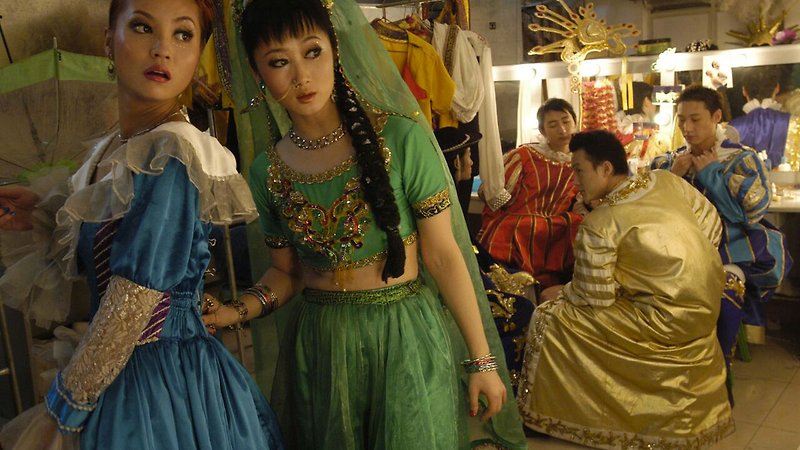"We are in the hands of a master… his imagery is so boilingly alive that we come away from it feeling exhilarated rather than depressed." — David Chute, LA Weekly

Screened as part of NZIFF 2005
The World 2004
Shijie
The World is the first officially condoned film by the celebrated young director of Xiao Wu and Unknown Pleasures, and his first to deal with city life. Its picture of young drifters in the gaudy ‘world’ of a vast global-replica theme park is as vitalised by their active disquiet as the grittier earlier features were animated by the scrappy impatience of provincial youth.
“China’s headlong rush to modernise continues to throw up endless problems and contradictions, not least the awkward gap between the country’s wishful image of itself as a sophisticated ‘developed nation’ and the widespread desire among Chinese people to travel abroad or, preferably, emigrate. Jia Zhang-ke addresses that gap head on in his first non-underground feature, set in and around a ‘World’ theme park which contains scale replicas of the Eiffel Tower, the pyramids, Tower Bridge, the Taj Mahal and so on. Tao (Zhao Tao, now established as Jia’s constant muse) is a singer and dancer in the park’s shows; her boyfriend Taisheng is one of the security guards. Their more or less chaste romance, ultimately strained by his attempted infidelity, gives the movie its core. Around them are assorted go-getters, gangsters, social climbers and sleazeballs, all of them as emblematic of ‘New China’ as the villagers who flock to Beijing to earn big money doing dangerous jobs in the construction industry. As a snapshot of China at a particular moment, this is in sharp focus. As a movie, it’s highly original and brilliantly achieved.” — Tony Rayns, London Film Festival